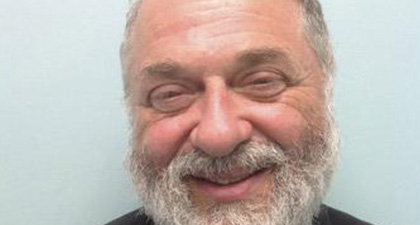A complaint about ritual circumcision that was dismissed by a disciplinary body and rejected again this week on appeal was not surprising and was largely motivated by anti-Semitism, says Dr. Aaron Jesin, who was named in the case.
Complaints against circumcision are “part of a left-wing liberal agenda,” Jesin, a longtime family physician and well-known mohel in Toronto said in a telephone interview Friday. “You can’t convince anyone with the facts.”
“They always ignore all medical evidence that circumcision has recognized medical benefits,” Jesin said. “There are definite medical benefits. You’re certainly not harming them [children].”
Anti-circumcision activists are acting on a misguided “liberal” philosophy that children, who are unable to consent, cannot have decisions made for them, he said.
“We believe that we should influence our children with Torah and good deeds, and when they grow up they can decide for themselves.”
Anti-Semitism is also one of the driving forces behind these types of complaints, Jesin said. Opposition to circumcision “rears its ugly head all the time. It’s nothing new. It’s since the time of the Greeks.”
Jesin, who maintains a website about his circumcision practice, believes the attack wasn’t personal, but that he’s merely “the lightning rod” for the ongoing campaign against circumcision.
The original complaint, which was lodged with the inquiries, complaints and reports committee of the College of Physicians and Surgeons of Ontario in January 2013, was spurred by an article in The Canadian Jewish News and a mistaken belief that Jesin performed metzitzah ba’al peh (suctioning blood after circumcision ) using direct oral contact.
In fact, Jesin told the complaints committee that he has not performed direct oral suction for many years and now uses a sterile cylinder and gauze to provide suction. The committee found it was “adequate protection against the transmission of infection.”
The complainant, who was not named in the decision that the committee made public, was represented by John Geisheker, executive director and general counsel for Doctors Opposing Circumcision, based in Seattle, Wash.
The complaint also alleged that Jesin was unable to fulfil his duties as a physician “due to personal bias surrounding his religious beliefs.”
The complaint went on to state that “although it might be presumptive for me to say so, I will say to you that given the nature of this breach, one cannot rule out sexual motive.”
The committee ruled there was no evidence to support either claim.
“There is no societal consensus against male circumcision and the college does not take any stance for or against the procedure. Furthermore, we could find no evidence that [Jesin] was performing circumcisions inappropriately in any way.”
The allegation about sexual motive was “completely frivolous in nature,” possibly inserted to ensure the complaint was heard, Jesin said.
In a decision released July 8, the Health Professions Appeal and Review Board clearly refused to be drawn into the debate over the “biblical, historical, religious or societal ramifications of the practice of male circumcision.”
What the complainant was seeking was “in reality an inquiry into the lawfulness of ritual amputation of genital tissue from minors,” the appeal board’s decision stated, and it upheld the college’s decision to dismiss the complaints against Jesin.
“It was obvious to the board that he [Geisheker] and the applicant [identified only as D.S.] were using the complaint procedure to launch a broadsided attack on the practice of circumcision, whether ritual or non-ritual,” the appeal board stated.
An argument that circumcision violated the Canadian Charter of Rights and Freedoms was also dismissed.
